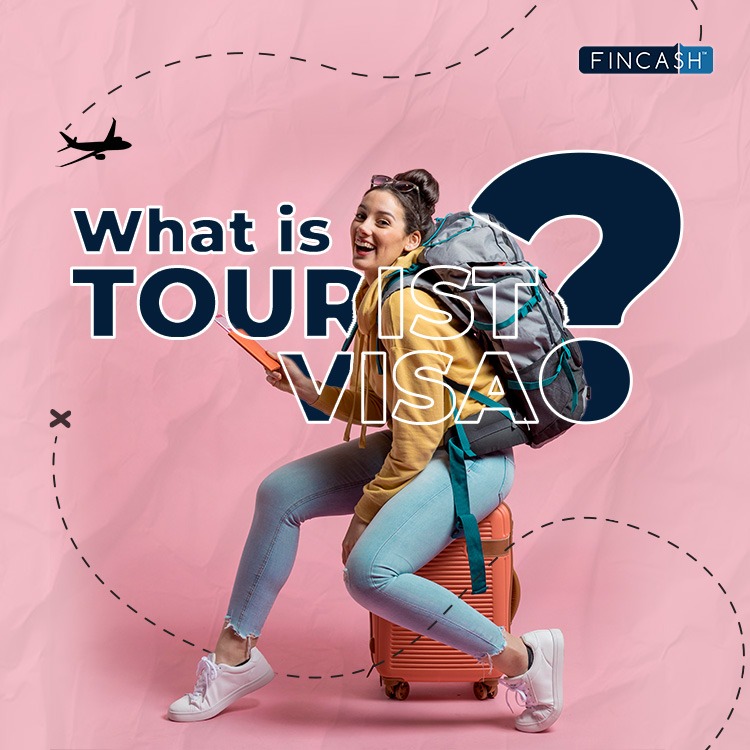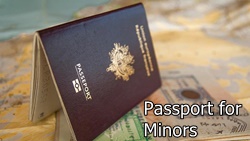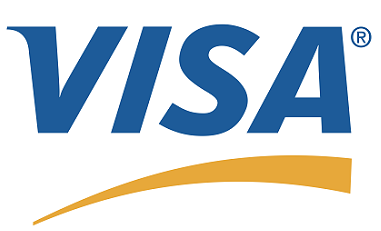A Comprehensive Guide to Tourist Visa
Every year, millions of people across the globe dream of exploring new horizons, experiencing different cultures, and creating lasting memories through international travel. Travel, for leisure and cultural immersion, is a universal desire that transcends borders and languages. However, before setting out on these adventures, travellers must navigate the intricate world of tourist visas. A tourist visa is the key that unlocks the doors to foreign lands, allowing travellers to discover the beauty and wonders of distant places.

This comprehensive guide aims to explain the often complex and multifaceted realm of tourist visas. From understanding the fundamental concepts to diving deep into the specific requirements and application processes, this article serves as your travel companion, ensuring your journey begins with a smooth and hassle-free visa application.
What is a Tourist Visa?
A tourist visa is a document that the government of a foreign country issues to permit a traveller to visit their nation for a specific duration, generally for leisure or non-business purposes. These visas are essential for individuals planning vacations, sightseeing trips, or family visits abroad. It is essential to recognise that the specific regulations, requirements, and application procedures for tourist visas can vary significantly from one country to another. Therefore, understanding the fundamentals of tourist visas is a crucial step for any traveller. Also, one thing to remember is that tourist visas typically do not permit visitors to engage in employment or other Income-generating activities during their stay.
Types of Tourist Visas
Tourist visas come in various forms, and the specific type you need depends on your destination and the nature of your visit. Some common types of tourist visas include:
1. Single Entry Tourist Visa
A single-entry tourist visa is a type of travel document that permits visitors to enter a foreign country only once during a specified period. It is one of the most common types of tourist visas and is widely used by travellers who intend to explore a single destination before returning to their home country.
You can use a single-entry tourist visa during:
- Single-Destination Travel
- Short Getaways
- Specific Events or Occasions
The application process for a single-entry tourist visa varies from country to country, and you must adhere to the regulations of the host nation.
Advantages
- Single-entry visas are straightforward to obtain and are often processed quickly
- They are generally more affordable than multiple-entry visas, making them a cost-effective choice for short vacations
- Single-entry visas offer clear guidelines on when and where you can enter and exit
Disadvantages
- As the name suggests, you can only use a single-entry visa to enter the host country once. Once you leave, it typically becomes invalid
- If you plan to visit multiple countries or cities during your journey, a single-entry visa may not be suitable, as it will require applying for multiple visas
Talk to our investment specialist
2. Multiple Entry Tourist Visa
A multiple-entry tourist visa is a travel document that allows you to enter a foreign country multiple times during its validity period. Unlike a single-entry tourist visa, this one offers you the convenience of multiple visits without needing to reapply for a new visa each time you cross the border within a specified timeframe, typically six months to several years.
You can use a multiple-entry tourist visa during:
- The planning of a gap year adventure
- A business trip with multiple meetings
- Exploration of different regions of a country
- The Multiple Entry Tourist Visa application process varies from country to country
Advantages
- Travelers can design their itineraries without constraints on the number of entries, making it perfect for exploring diverse destinations
- Business travellers often find Multiple Entry Tourist Visas invaluable for attending various countries' meetings, conferences, and events
- With a Multiple Entry Tourist Visa, there's no need to wait for visa approvals between each trip
Disadvantages
- The initial fees for a multiple-entry visa can be more expensive, which can disadvantage budget-conscious travellers
- Visa approval is at the discretion of the host country's immigration authorities, and they may reject applications without providing specific reasons
3. Visa on Arrival
Visa on Arrival, often abbreviated as VoA, is a visa issued to travellers when they arrive at their destination's border or airport. It lets you enter the country and stay for a specified period, typically for tourism, business, or other short-term purposes. VoAs provide flexibility for those without the time to secure a visa in advance or wish to embark on a last-minute trip.
Advantages
- Whether you come across an irresistible flight deal or suddenly decide to take a vacation, VoAs allow you to pack your bags and go
- VoAs save you from the hassles of time-consuming application process and waiting periods
- VoAs provide flexibility in case you're unsure about your exact travel dates. You can book your flight and decide the duration of your stay later
Disadvantages
- Not all countries offer VoAs, and eligibility can vary based on your nationality. Some countries provide VoAs for tourists but not for business purposes
- It's essential to review and meet the entry requirements specified by each country
- Failure to do so can result in denied entry
4. e-Visa
An Electronic Visa, or E-Visa, is a digital travel authorisation that permits entry to a foreign country. Unlike conventional visas, which involve lengthy application forms, visits to embassies or consulates, and physical stamps or stickers in your passport, E-Visas simplify the process by moving it online. Travellers can apply for, receive, and carry their E-Visas entirely in digital format, often as a printable document or a virtual record linked to their passport.
Advantages
- There's no need to visit embassies or consulates to obtain an e-visa, which can be particularly advantageous for individuals
- E-Visas significantly reduce processing times compared to traditional visa application processes
- Online application forms often include built-in error-checking features, reducing the likelihood of incomplete or inaccurate submissions
Disadvantages
- Not all countries offer e-Visas, and eligibility can vary by nationality
- The E-Visas fees are typically non-refundable, even if the application is denied
5. Group Tourist Visa
A group tourist visa is a type of travel visa that allows a group of people to visit a foreign country together. This group can consist of family members, friends, colleagues, or individuals brought together by a common interest, such as a tour group. This visa simplifies the travel process for multiple individuals, reducing paperwork processing time and providing a unified entry into the destination country.
Advantages and Limitations of Group Tourist Visa
Here are the advantages and disadvantages of a Group Tourist Visa:
Advantages
- When a group applies together, they can often benefit from reduced processing fees, shared accommodation expenses, and group discounts for tours and activities
- Group visas streamline the application process, as one person can typically submit the visa application and documents on behalf of the entire group. This eliminates the need for each individual to make separate appointments at embassies or consulates
- Group travellers can enjoy the freedom to explore together or separately. The visa typically covers a specific period, allowing members to join or leave the group at their convenience
Disadvantages
- Group visas often require travellers to enter and exit the destination country as a group. This can limit individual flexibility
- When one group member violates visa regulations, it can affect the entire group. If one person overstays their visa or engages in prohibited activities, it may lead to complications for everyone in the group
Tourist Visa Requirements
The detailed requirements for obtaining a tourist visa vary from country to country. However, there are some common prerequisites that travellers often need to meet:
Valid Passport: You must possess a passport with at least six months of validity beyond your intended departure date from the host country
Visa Application Form: Completing the application form accurately and honestly is crucial. Some countries offer online application forms, while others require physical forms to be submitted
Passport-sized Photos: Typically, you'll need to provide recent passport-sized photographs that meet the host country's specifications
Proof of Travel Itinerary: This can include flight reservations, hotel bookings, or a detailed travel plan
Proof of Sufficient Funds: Many countries require proof of adequate funds that can cover your expenses during your stay. This might involve Bank statements, traveller's cheques, or a sponsorship letter
Visa Fee: Travelers usually need to pay a visa application fee. The amount can vary based on the visa type and destination country
Travel insurance: Some countries may need Travel Insurance, especially for medical coverage
Supporting Documents: Specific countries may have additional requirements, such as a letter of invitation, a "No Objection Certificate" from your employer, or a letter explaining the purpose of your trip
Tourist Visa Application Process
The tourist visa application process can vary significantly depending on your destination. Here is a general overview of the steps involved:
Research: Begin by researching the tourist visa requirements for your chosen destination. Identify the type of visa you need and gather all necessary documents
Complete the Application: Fill out the visa application form carefully, providing accurate information. Be prepared to pay the visa fee during this step
Gather Supporting Documents: Collect all required documents, such as passport photos, proof of travel itinerary, and financial evidence
Submit Your Application: Depending on the country, you may need to submit your application online, in person at the nearest consulate or embassy, or through a visa application centre
Attend an Interview: Some countries require applicants to attend a visa interview to determine the purpose of the trip and assess eligibility
Await a Decision: The processing time for tourist visas can be anywhere between a few days to several weeks, so applying well before your planned trip is essential.
Tips for a Successful Visa Application
To increase your chances of a successful tourist visa application, consider the following tips:
Provide Accurate Information: Ensure all information on your application is accurate and up-to-date
Read the Guidelines: Familiarise yourself with the host country's visa guidelines and requirements
Organise Your Documents: Keep all necessary documents neatly organised and submit them as required
Be Prepared for an Interview: If an interview is part of the process, be ready to explain your travel plans and demonstrate your intentions
Follow-Up: After submitting your application, stay informed about its status and follow up with the embassy or consulate if necessary
Conclusion
Tourist visas are the gateway to memorable journeys and cultural experiences. By understanding the requirements, types, and application process, you can confidently navigate the world of tourist visas and embark on your next adventure.
All efforts have been made to ensure the information provided here is accurate. However, no guarantees are made regarding correctness of data. Please verify with scheme information document before making any investment.












